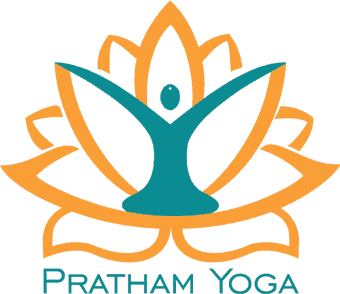The Serenity Guide: Prenatal Yoga for Relaxation during Pregnancy
Pregnancy is a beautiful and transformative phase in a woman’s life, filled with joy, anticipation, and a myriad of physical and emotional changes. Alongside the excitement, it is crucial for expectant mothers to prioritize their well-being and find ways to manage the stress and discomforts that often accompany pregnancy. Prenatal yoga is a gentle and beneficial practice that can provide much-needed relaxation, physical support, and emotional balance during this transformative journey. In this article, we will explore the concept of prenatal yoga, its benefits, a few recommended poses, safety considerations, and tips for managing pregnancy-related stress and discomforts.
What is Prenatal Yoga?
Prenatal yoga is a specialized form of yoga designed specifically for expectant mothers. It involves gentle stretches, breathing techniques, and meditation practices tailored to support the physical and emotional needs of pregnant women. Prenatal yoga classes are typically led by certified instructors who have received specialized training in prenatal yoga teacher training programs, such as those offered by renowned institutes like Pratham Yoga in India.

Benefits of Prenatal Yoga:
Physical Support: Prenatal yoga helps in maintaining flexibility, strength, and balance, which are essential during pregnancy. The gentle stretches and poses can alleviate common discomforts like back pain, swollen ankles, and tight muscles.
Emotional Balance: Pregnancy often brings about a rollercoaster of emotions. Prenatal yoga provides a safe space for expectant mothers to connect with their changing bodies and cultivate emotional well-being. The breathing and meditation techniques promote relaxation, reduce anxiety, and enhance overall mental wellness.
Bonding with Baby: Prenatal yoga encourages mindful awareness of the baby’s presence, fostering a deep connection between mother and child. Through gentle movements and focused attention, expectant mothers can create a nurturing environment for the baby and enhance the mother-child bond.
Few Prenatal Yoga Poses:
Cat-Cow Stretch (Marjaryasana-Bitilasana): This gentle spinal stretch helps relieve backache and promotes flexibility in the spine.
Modified Child’s Pose (Balasana): With knees wide apart and arms extended forward, this pose helps in releasing tension in the lower back and hips, while providing a sense of relaxation.
Butterfly Stretch (Baddha Konasana): This pose opens up the hips and pelvis, providing relief from sciatic pain and preparing the body for childbirth.

Safety Considerations:
While prenatal yoga is generally safe, it is essential to keep certain considerations in mind:
Consult your healthcare provider: Before starting any exercise program, including prenatal yoga, it is crucial to consult your healthcare provider to ensure that it is appropriate for your individual pregnancy.
Choose certified instructors: Opt for prenatal yoga classes led by certified instructors who have completed specialized prenatal yoga teacher training courses. They possess the necessary knowledge to guide you safely through the practice.
Modify poses as needed: Every pregnancy is unique, and certain poses may need to be modified or avoided based on individual circumstances. Listen to your body and make adjustments as necessary to ensure comfort and safety.
How can I manage pregnancy-related stress and emotions?
Pregnancy can bring about a range of emotions, from joy and excitement to anxiety and mood swings. Here are some tips to manage stress and promote emotional well-being during pregnancy:
Prenatal Yoga and Meditation: Engaging in regular prenatal yoga classes and meditation practices can help calm the mind, reduce stress, and enhance emotional balance.
Supportive Network: Surround yourself with a supportive network of family, friends, and fellow expectant mothers. Share your feelings and concerns, seek advice, and find solace in knowing you are not alone in this journey.
Self-Care Rituals: Take time for self-care activities that bring you joy and relaxation. This could include taking baths, reading uplifting books, practicing mindfulness, or indulging in soothing prenatal massages.
How can I manage morning sickness and other pregnancy-related discomforts?

Many expectant mothers experience morning sickness and other discomforts during pregnancy. While it is important to consult your healthcare provider for personalized advice, here are some general tips:
Eat small, frequent meals: Opt for smaller meals throughout the day to avoid overwhelming your digestive system. Choose foods that are easily digestible and avoid greasy or spicy dishes.
Stay hydrated: Drink plenty of water and consume fluids rich in electrolytes to stay hydrated and ease nausea.
Ginger and peppermint: Incorporate ginger or peppermint into your diet, as these natural remedies are known to alleviate nausea and digestive issues.
What prenatal vitamins and supplements should I take?
During pregnancy, it is essential to provide adequate nutrition for both the mother and the growing baby. While specific vitamin and supplement requirements may vary, here are some commonly recommended ones:
Folic Acid: Folic acid plays a vital role in the formation and development of the baby’s neural tube. It is recommended to take a prenatal vitamin that includes folic acid.
Iron: Iron supports the production of red blood cells and prevents anemia. Your healthcare provider may recommend iron supplements if needed.
Omega-3 Fatty Acids: Omega-3 fatty acids, particularly DHA, support the baby’s brain and eye development. Consider incorporating foods rich in omega-3s or taking a prenatal supplement that includes DHA.
What foods should I avoid during pregnancy?

While maintaining a balanced diet is crucial during pregnancy, there are certain foods to avoid to ensure the health and well-being of both the mother and the baby:
Raw or undercooked seafood: Raw or undercooked seafood may contain harmful bacteria and parasites. Avoid consuming raw fish, sushi, and unpasteurized seafood.
Deli meats and unpasteurized dairy products: These foods may contain bacteria that can lead to foodborne illnesses. Opt for cooked deli meats and pasteurized dairy products instead.
High-mercury fish: Some fish, such as shark, swordfish, and king mackerel, have high levels of mercury, which can be harmful to the baby’s developing nervous system. Choose low-mercury fish like salmon, trout, and sardines instead.
Prenatal yoga is a valuable practice for expectant mothers, providing physical support, emotional balance, and relaxation during pregnancy. By incorporating prenatal yoga into their routine, expectant mothers can find solace, alleviate discomforts, and cultivate a deep connection with their growing baby. Remember to consult your healthcare provider, choose certified instructors, and prioritize self-care to enhance your pregnancy journey. With the guidance of experts and the support of a nurturing community, such as Pratham Yoga’s prenatal yoga teacher training courses in rishikesh, India, expectant mothers can embark on a serene and empowering journey towards motherhood.


